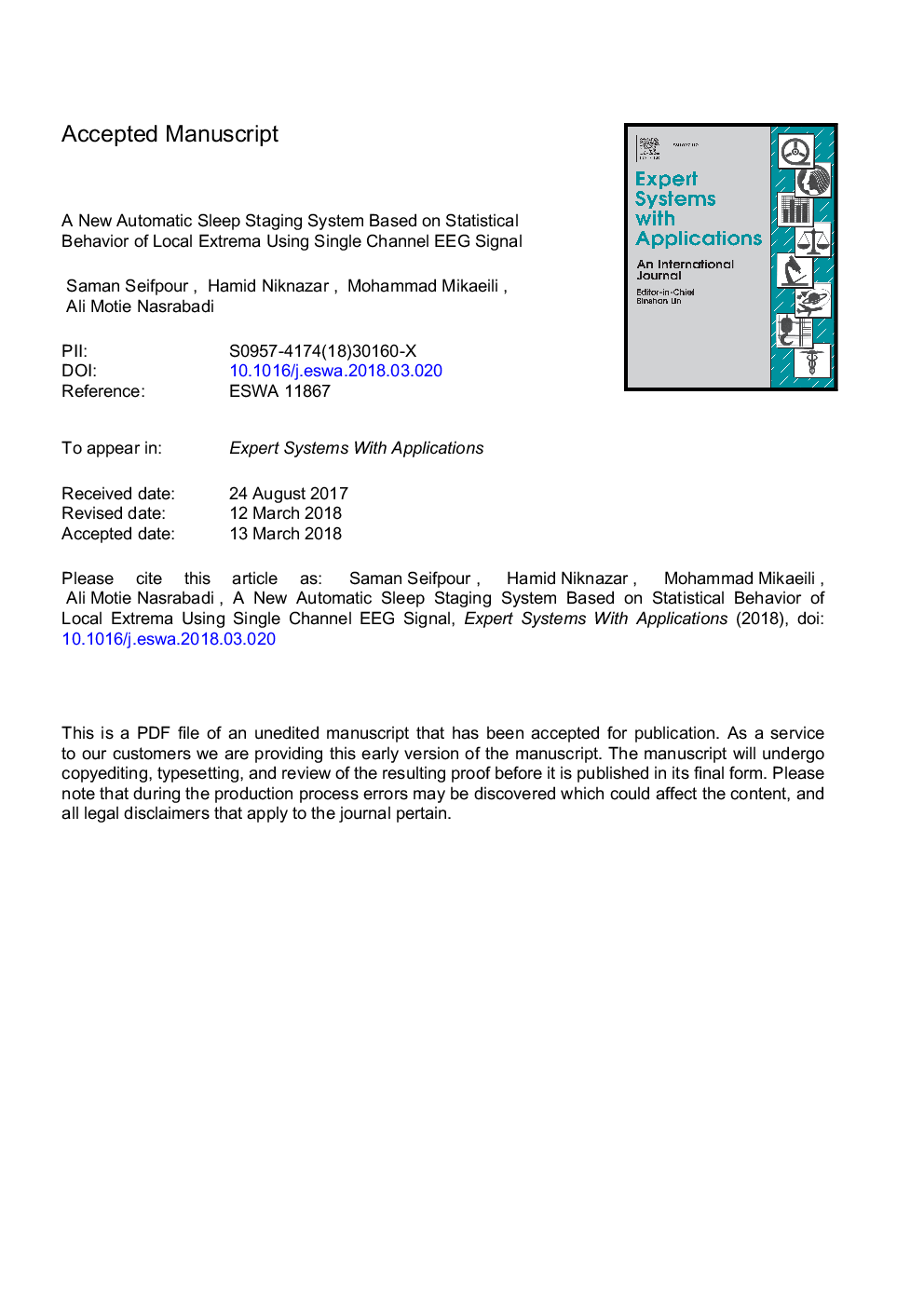| Article ID | Journal | Published Year | Pages | File Type |
|---|---|---|---|---|
| 6855014 | Expert Systems with Applications | 2018 | 45 Pages |
Abstract
Over the past decade, converging evidence from diverse studies has demonstrated that sleep is closely associated with the mental and physical health, quality of life, and safety. Visual sleep scoring provides an initial and tangible illustration of how the brain wave changes across different sleep stages. The main objective of the present study is to design an accurate and robust computer-assisted sleep stage scoring system using single-channel EEG signal by proposing a novel time domain feature named Statistical Behavior of Local Extrema (SBLE). SBLE provides a profound understanding of hidden dynamics of EEG signals by quantifying and symbolizing its local extrema information, extracting and defining various patterns, and statistical analysis of extracted patterns. First, each EEG segment was decomposed into 6 frequency sub-bands (i.e., low-delta, high-delta, theta, alpha, sigma, and beta). Next, SBLE features were separately computed from each sub-band. Then, an optimal feature set with a high rate of accuracy was selected using a supervised Multi-Cluster/Class Feature Selection (MCFS) algorithm. Finally, the selected features were fed to a multi-class Support Vector Machine (SVM) for classification purposes. The benchmark Sleep-EDF dataset and DREAMS Subject Database were employed to evaluate the performance of the proposed framework. The average (± variance) accuracy rates were 90.6â¯Â±â¯4.2%, 91.8â¯Â±â¯5.0%, 92.8â¯Â±â¯3.3%, 94.5â¯Â±â¯3.4%, 97.9â¯Â±â¯1.4% for six-stage to two-stage sleep classification on Sleep-EDF dataset, respectively. Besides, its performance on DREAMS Subjects Database was also promising in term of accuracy, sensitivity, specificity, and Cohen's Kappa coefficient. Experimental results suggest that the proposed methodology can precisely solve the multi-class sleep stage classification problem by presenting an innovative symbolic approach similar to physician's point of view.
Keywords
Related Topics
Physical Sciences and Engineering
Computer Science
Artificial Intelligence
Authors
Saman Seifpour, Hamid Niknazar, Mohammad Mikaeili, Ali Motie Nasrabadi,
